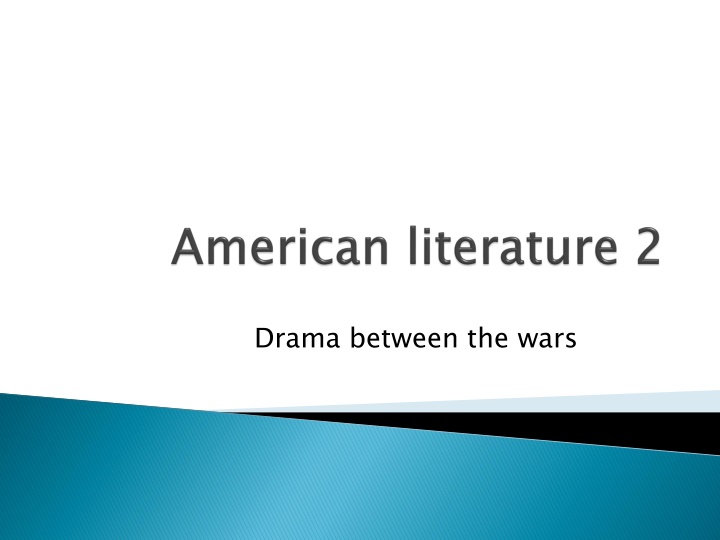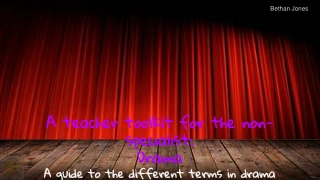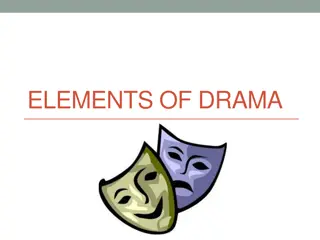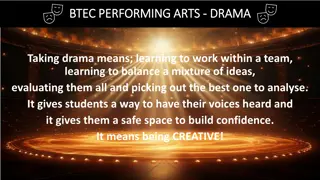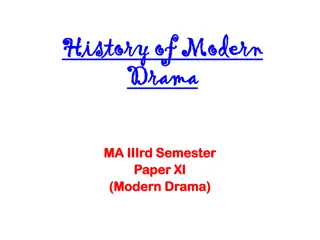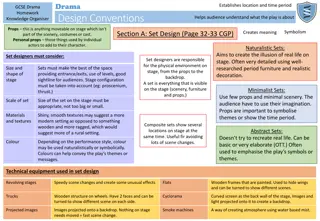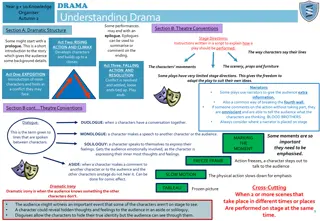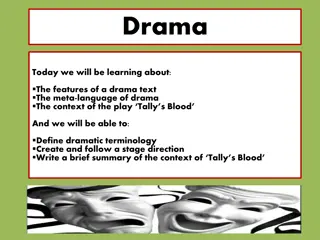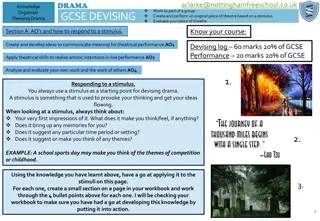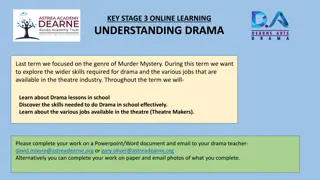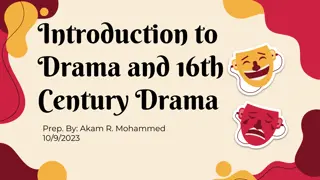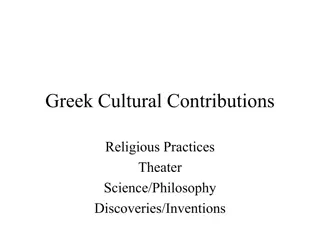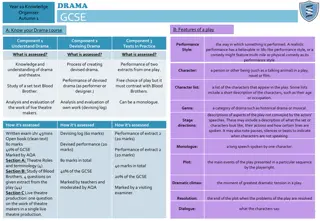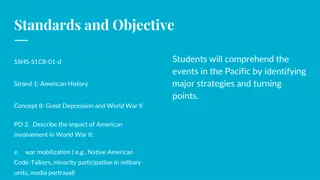Drama Between the Wars: Evolution of American Theater
Exploring the evolution of American drama between the wars, from the Puritan rejection of theater to the emergence of American playwrights and the influence of European masters. The rise of popular forms like vaudeville and the impact of theatrical companies post-WWI, with a focus on key figures like Elmer Rice and the Provincetown Players. The works of Rice such as "On Trial" and "The Adding Machine" reflect the changing societal landscape and technological advances of the time.
Download Presentation

Please find below an Image/Link to download the presentation.
The content on the website is provided AS IS for your information and personal use only. It may not be sold, licensed, or shared on other websites without obtaining consent from the author.If you encounter any issues during the download, it is possible that the publisher has removed the file from their server.
You are allowed to download the files provided on this website for personal or commercial use, subject to the condition that they are used lawfully. All files are the property of their respective owners.
The content on the website is provided AS IS for your information and personal use only. It may not be sold, licensed, or shared on other websites without obtaining consent from the author.
E N D
Presentation Transcript
T The beginnings of American drama he beginnings of American drama: For Puritans, drama was the work of devil the 1767 Philadelphia production of Thomas Godfrey's The Prince of Parthia I774 the Continental Congress banned plays Most American plays were adaptations of European originals
American popular forms: vaudeville, burlesque, minstrelsy, the Broadway musical and Hollywood motion picture William Dunlap: founder of the national theater. free adaptations from French, German and Elizabethan sources.
European influences: William Shakespeare Henrik Ibsen: father of realism; Dolls House G. B. Shaw: Pygmalion
Theatrical companies after the WWI: The Provincetown Players Washington Square Players Group Theatre First to put on stage American playwrights
Elmer Rice (Elmer Leopold Reisenstein) Works: On Trial, The Adding Machine, Street Scene huge increase in production and regulation due to the new concept of the welfare state introduced in World War I multinational corporations, towering factories and long assembly lines On Trial: technique of the motion picture cutback to present scenes and rotating stage
The Adding Machine: expressionist techniques of fantasy and symbolism to satirize the reduction of individuals, in the machine age, to waste product Street Scene: empirical realism in its presentation of slum life, sound effects, multiple action technique
The Provincetown Players Among the founding members of the group were George Cram Cook, Susan Glaspell, Neith Boyce, Robert Edmond Jones, and, later, Floyd Dell. In contrast to the Washington Square Players, the Provincetown Players remained committed to experimental work
Eugene O'Neill Nobel Prize in 1936 as the only American playwright Influenced by psychoanalysis Greek choruses, single characters played by two actors, cinematic flashbacks and elaborate stage masks Works: Long Day's Journey into Night, Ah, Wilderness! , Dynamo, The Hairy Ape, Desire Under the Elms
Thornton Wilder Works: Our Town, The Skin of Our Teeth, The Matchmaker (Hello Dolly) Clifford Odets Playwright of the Great Depression Proletarian drama Group Theatre Works: Waiting for Lefty, Awake and Sing!, Till the Day I Die, Paradise Lost, Golden Boy
